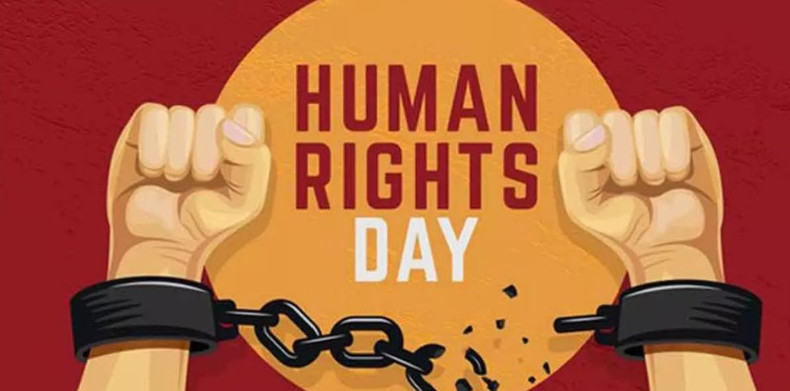OURSELF INFLICTED FUEL DILEMMA BY DR JOHNSTONE CHIKWANDA, ENERGY EXPERT
=====================
1) Zambia has recently been experiencing fuel stock outs, especially on petrol, due to alleged post electoral violence in Mozambique. Zambia’s petrol has, to a large extent, been coming via the Mozambique transit corridors.
2) Zambia is not the only country that uses the Mozambique corridor for fuel transportation yet it is more affected that other countries. Why?
3) Before these post electoral violence in Mozambique, Zimbabwe made changes to customs regulations for transit fuel tankers. This action affected at least 3,000 fuel tankers. This decision adversely impacted Zambia more than other countries. How?
4) The Petroleum Transporters of Zambia (PTAZ) has, for more than 5 years, been lobbying government to actualize the SI on fuel transportation thereby empowering the local transporters to be the only ones bringing fuel for Zambia as they have grown capacity to transport all Zambia’s fuel requirements by road. This request has been up to now not been fully granted since the SI on fuel transportation has not been actualized.
5) Most OMCs have continued to give long-term fuel transportation to foreign transporters at the expense of local transporters who equally have credible trucks. Very few local tankers are being used by OMCs for fuel importation. Lobbying government has been a daunting task for PTAZ.
6) Faced with this dilemma of not being used in the local market significantly on import routes, PTAZ members decided to secure long-term transportation contracts for DRC OMCs. This is in order to remain afloat since they are being shunned by Zambian OMCs.
7) Now the foreign tankers which the Local OMCs have been depending on for imports at the expense of Zambian tankers have found themselves in a dilemma due to customs duty changes for all transit fuel tankers in Zimbabwe. This means that all those foreign tankers hiredK by Zambian OMCs have been technically grounded by decisions in Zimbabwe.
8) In other words, the Zambian OMCs have now found themselves in a difficult position because their contracted foreign tankers have been grounded. Even if post electoral violence ended in Mozambique, the dilemma will still be in place significantly.
9) OMCs attempts to use Zambian Transporters whom they have been shunning in preference for foreign transporters is proving a challenge as most of them secured long term transportation contracts with DRC OMCs after being shunned in Zambia for importation of fuel. Only very few have been contracted.
10) Even more vexatious are indications that there are some foreign transporters registered in Zambia and licensed by ERB but they have been transporting fuel for DRC market and not for the local market they were licensed for meaning they have also joined the Zambian transporters into the DRC market.
11) The root cause of this petrol outage is the inability to actualize the SI on transportation of imported fuel by Zambian transporters. This loop hole has consistently given latitude to OMCs to continue using foreign tankers, possibly owned by sister companies or business partners or friends, to the detriment of local transporters. As a reaction, the local transporters opted to find business survival in the DRC market. But why do local OMCs prefer to use foreign tankers even when local transporters meet standards? This question can only be answered by OMCs.
12) All things being equal this problem shouldn’t have arisen if it was not the decisions in Zimbabwe grounding most foreign tankers. The Zambian OMCs have found themselves in a dilemma since the local tankers they were shunning as by and large not available this time around as they have been hired by DRC after being shunned locally.
13) There is also one major OMC whose actions are questionable.
WHAT ABOUT IF THE VI0LENCE IN MOZAMBIQUE ENDS?
The challenge for Zambia will, to a significant extent, remain in place because the real major issue is change to customs regulations in Zimbabwe for transit fuels.
Zimbabwe made decisions to curb millions of dollars which it was losing to fuel smuggling, so it tighted the loopholes eliminate tax evasion and other malfeasance.
WHAT SHOULD WE DO?
1) Actualize the SI on import fuel transportation by local transporters. This will pacify PTAZ and allied transporters. Under the current circumstances PTAZ is smilling having been shunned for too long in a significant way.
2) The pattern of over depending on foreign road transporters to bring fuel to Zambia in a significant way is not safe for Zambia. It cannot guarantee energy security.
3) Edit the monthly price review
4) Energy diplomacy.
5) Allow Ministry of Transport and Logistics to take a more leading role when dealing with tankers because it has experts in transportation as compared to Ministry of Energy/ERB as they don’t have transport system experts. That’s why even on the Tazama pipeline I have been advising that oversight is shifted to Ministry of Transport because pipeline is a transport issue. Oversight of the pipeline can shift to Ministry of Transport while the client Ministry can still remain Ministry of Energy. This will remove the conflict of interest of same Ministry providing oversight and is also running tenders for access of the pipeline.
6) Deal with what causes OMCs to prefer to use foreign tankers.
God Bless Zambia.










